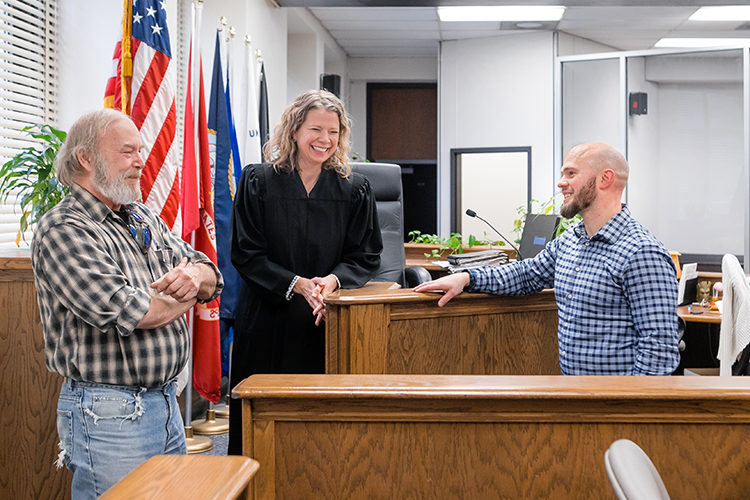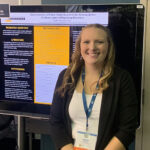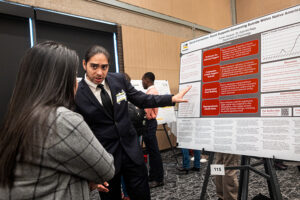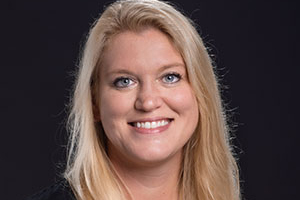UWM alumnus Jake Patten is an advocate of second chances – especially for veterans who struggled to adjust to civilian life and now serve jail time for nonviolent crimes. But the path to a new life doesn’t come easily. First, the veteran has to plead guilty.
Patten is the coordinator of the Milwaukee County Veterans Treatment Court, a specialized court that aims to help jailed veterans by diverting them from the traditional justice system. It focuses on treatment and rehabilitation for these veterans, who are more at risk for substance abuse or mental illness. In 2017, nearly one in every seven suicides in the U.S. was a veteran, though veterans only make up about 8% of the country’s population.
As coordinator, Patten often visits eligible veterans in jail to talk with them about the program and its benefits. For a veteran to participate, he or she must have received a discharge other than dishonorable from the U.S. Armed Forces, face only nonviolent criminal offenses in the Milwaukee County Circuit Court and accept responsibility by pleading guilty. From there, Patten and his team work alongside a judge to devise a treatment plan.
“Once we ensure that those requirements are met, then it’s really up to the veteran if they want to participate or not because this program is pretty rigorous,” Patten said. “There’s absolute sobriety; they’re tested pretty frequently. It’s not easy by any means, but at the end of the day it’s about getting them the treatment and the services that are provided by the VA (Veterans Affairs) so they can get past that and live their lives.”
Providing resources, incentives
The team provides resources to improve veterans’ employment opportunities, housing, social situations and other factors that would cause them to re-offend. Participants can also receive awards, gift cards, bus passes or reduced court appearances in recognition of their achievements in the program.
From 2018 to 2019, the court’s graduation rate rose from 72% to 78%, which often led to reduced charges or a complete dismissal of the case. While Patten notes that graduation rates vary by program, the Milwaukee County Veterans Treatment Court’s graduation rate is on the rise compared to some states such as Missouri, whose veterans treatment courts saw a graduation rate of 73% in 2017.
Not only does the court see a high graduation rate but many of the graduates do not become repeat offenders after graduation. The court’s recidivism rate in 2019 was 8%, a fair achievement compared to the national average of 14%, as a recent study of veterans treatment courts found.
“Rather than sit in jail, we get them the treatment they need,” Patten said. “It keeps them from the same lives they were in before they started the program.”
Close to home
The program hits close to home for Patten. He served in the Army until 2011 before coming back home to Milwaukee and continuing his education. With UWM’s military-friendly atmosphere, it was a natural choice for him.
“UWM just had the right feel.”
He graduated from UWM in 2013 with a degree in criminal justice and a few internships under his belt. From there, he worked with case management at Wisconsin Community Services in Waukesha and later the Department of Defense, providing job services for National Guard and Army Reserve soldiers. Then, he turned his eyes to the veterans in his community.
“Just knowing that we were once doing the same thing overseas, it just hits you pretty hard, seeing them on that side and me on this side,” he said. “There’s a brotherhood there. You understand where they came from and the process that took them to where they went.”
A second chance for veterans
Patten isn’t the only one trying to give back. Mark Flower, a mentor coordinator for the Veterans Treatment Court and a veteran from the Cold War era, sees the program as a second chance for veterans.
“It’s an opportunity to help them redirect where they’re going instead of having veterans keep falling backwards, which is usually what happens,” Flower said. “This process allows them to make a choice, which is in my mind very important, because now at least they chose to participate. In a lot of ways, it makes it easier to participate because they decided.”
One judge oversees all cases. Milwaukee County Circuit Judge Cynthia Davis is grateful for the opportunity to see each case through to the end.
“It’s all about connection,” she said. “I really do get to know the veterans and we can establish a connection. And I think that connection ultimately makes them feel more cared for.”
Rewarding for everyone
These close relationships are part of what helps veterans succeed and what makes the graduation ceremony so fulfilling, the team said. Veterans who successfully complete the program receive gift cards, praise from Davis and the team and a coin to remind them how far they’ve come.
“You can see the change they made, the progress that they’ve made, so that’s definitely one of my favorite parts of the job,” Patten said.
Flower agrees, saying that he loves to see the happy endings to the veterans’ stories. His favorite part of the graduation ceremony? “The smiles.”







